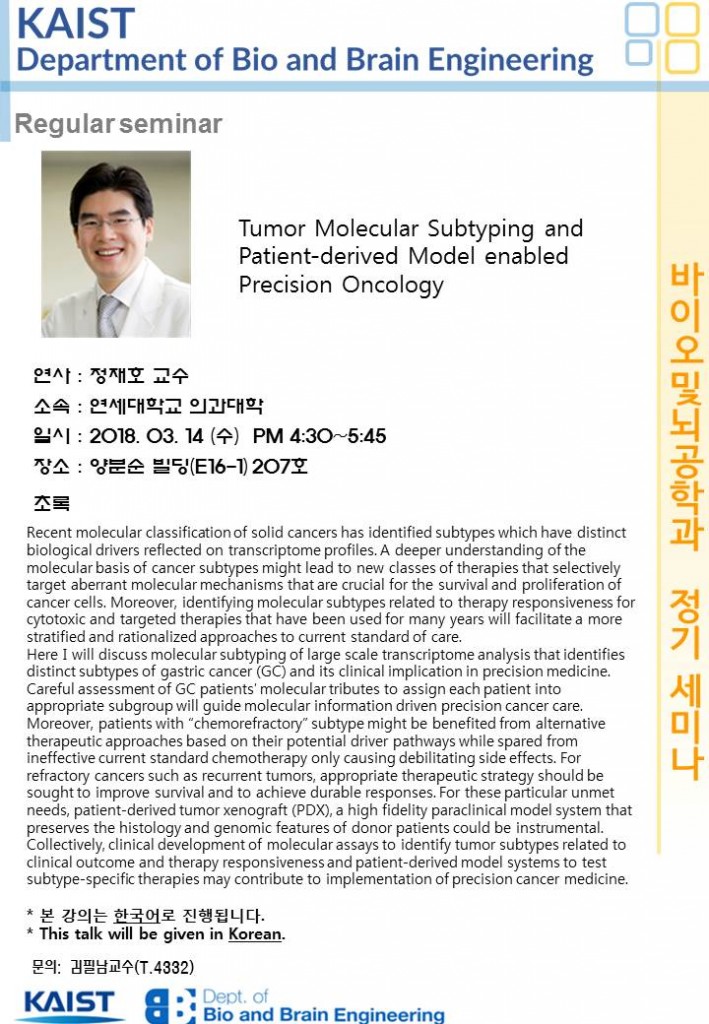| 연사 | 정재호교수 |
|---|---|
| 소속 | 연세대학교 의과대학 |
| 일시 | 2018.03.14 PM 4:30~5:45 |
| 장소 | 양분순 빌딩, #207 |

Title: Tumor Molecular Subtyping and Patient-derived Model enabled Precision Oncology
Speaker: Professor Jae-Ho Cheong, M.D., Ph.D. (Yonsei University College of Medicine)
Date & Time: March 14 (Wed), 4:30PM~5:45PM
Venue: YBS Bldg. (E16-1), Rm#207
Abstract:
Recent molecular classification of solid cancers has identified subtypes which have distinct biological drivers reflected on transcriptome profiles. A deeper understanding of the molecular basis of cancer subtypes might lead to new classes of therapies that selectively target aberrant molecular mechanisms that are crucial for the survival and proliferation of cancer cells. Moreover, identifying molecular subtypes related to therapy responsiveness for cytotoxic and targeted therapies that have been used for many years will facilitate a more stratified and rationalized approaches to current standard of care.
Here I will discuss molecular subtyping of large scale transcriptome analysis that identifies distinct subtypes of gastric cancer (GC) and its clinical implication in precision medicine. Careful assessment of GC patients’ molecular tributes to assign each patient into appropriate subgroup will guide molecular information driven precision cancer care. Moreover, patients with “chemorefractory” subtype might be benefited from alternative therapeutic approaches based on their potential driver pathways while spared from ineffective current standard chemotherapy only causing debilitating side effects. For refractory cancers such as recurrent tumors, appropriate therapeutic strategy should be sought to improve survival and to achieve durable responses. For these particular unmet needs, patient-derived tumor xenograft (PDX), a high fidelity paraclinical model system that preserves the histology and genomic features of donor patients could be instrumental.
Collectively, clinical development of molecular assays to identify tumor subtypes related to clinical outcome and therapy responsiveness and patient-derived model systems to test subtype-specific therapies may contribute to implementation of precision cancer medicine.






